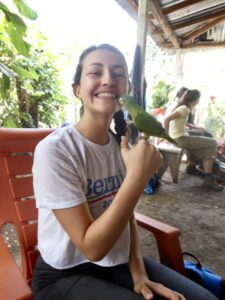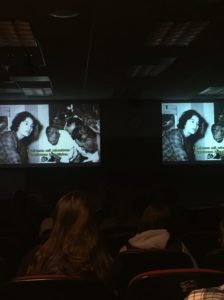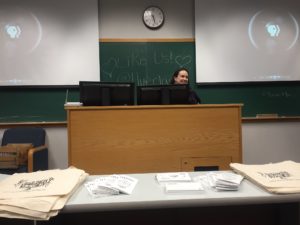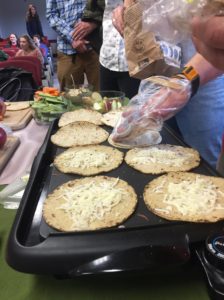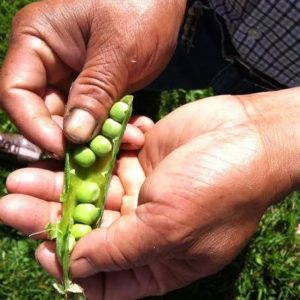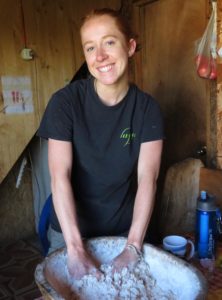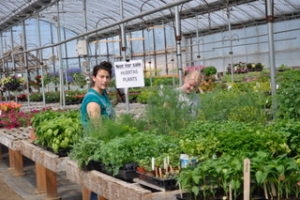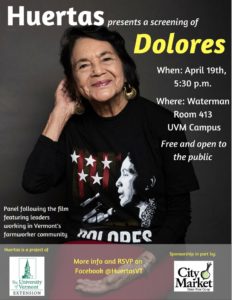Hello again, Alli!
Alli returns for her second year as a Huertas fellow! Last year, as a Field intern, Alli worked directly with farmworkers in the process of surveying, excavating and creating household gardens. This year as a returning fellow, Alli will be initiating new interns and helping with specialty work throughout the planning and planting process. As a Community Development major at UVM with a strong Spanish ability, Alli was immediately interested in this project when she first learned of it in a class she took with Professor Dan Baker.
Alli says that working with Huertas has allowed her to form a sense of independence and trust her own actions in the workforce setting, especially working with migrant farmworkers in rural Vermont. In addition, she credits the Huertas project with her highly increased communication skills in general and, more importantly, in a non-native language. The entire experience thus far has provided her with what she calls an “insight into things outside of yourself”—i.e. a whole-systems way of thinking that highlights cross-cultural skills. In the future, Alli hopes to continue working with migrant populations and food systems in a hands-on manner in Vermont or in Oaxaca, Mexico. She has also expressed interest in traveling to India both as a yoga instructor and in order to work with permaculture there.
When asked what advice she would give to new interns, Alli said that her biggest takeaway was to invest in the migrant workers themselves; whatever involvement you have, gain contextual information about the people you are working with in order to form relationships and be educated about what is going on in the Vermont community, as well as the US at large (in which immigration is a highly stigmatized topic). Alli says that Huertas has created a sense of family and belonging in a Vermont community that is, in many ways, hidden and disadvantaged. She is looking forward to working with Huertas as she enters into her last semester at UVM!
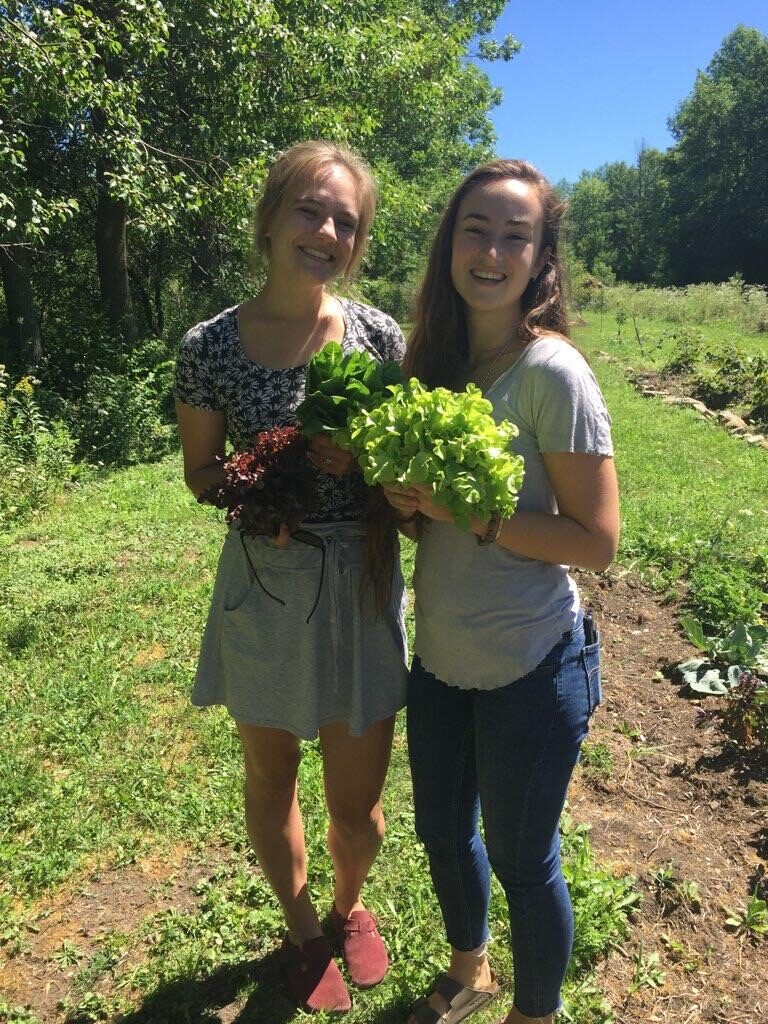
************************************************************************
¡Hola de nuevo, Alli!
¡Alli regresa como una becaria de Huertas por su segundo año! El año pasado, como una becaria de campo, Alli trabajó directamente con los trabajadores migrantes en el proceso de agrimensura, excavación y plantación de los jardines de hogar. Este año como una becaria de regreso, Alli iniciará nuevos becarios y ayudará con el trabajo especializado a través del proceso de planificación y plantación. Como una estudiante del desarrollo comunitario en UVM con una habilidad fuerte de hablar español, inmediatamente Alli fue interesado en este proyecto cuando aprendió sobre ello en una clase ella tomó con Profesor Dan Baker.
Alli dice que trabajar con Huertas el ha permitido formar un sentido de independencia y confianza de sus propias acciones en el entorno laboral, especialmente trabajar con los trabajadores migrantes en Vermont rural. Además ella atribuye al proyecto Huertas con sus habilidades de comunicación en general y, lo que es más importante, en un idioma que no es nativo. Toda la experiencia hasta ahora le ha proporcionado lo que ella describe como una “percepción de cosas fuera de sí mismo”—es decir una forma de pensar de los sistemas enteros que destaca las habilidades transculturales. En el futuro, Alli desea continuar trabajando con poblaciones de inmigrantes y con sistemas alimentarios en una manera práctica en Vermont o en Oaxaca, México. También ella ha expresado un interés en viajando a India como una instructora de yoga y para trabajar con la permacultura allí.
Cuando preguntado qué consejo ella daría a nuevos becarios, Alli dijo que su mayor consejo fue invertir en los trabajadores migrantes sus mismos; cualquier participación que tenga, obtén información contextual sobre los trabajadores con los que se está trabajando con el fin de formar relaciones y ser educados sobre lo que está sucediendo en la comunidad de Vermont, así como los EEUU (en el que la inmigración es un altamente estigmatizado tema). Alli dice que Huertas ha creado un sentido de familia y pertenencia en una comunidad en Vermont que es, en muchas maneras, oculta y desfavorecida. ¡Ella está emocionada trabajar con Huertas como ella completa su semestre final a UVM!
